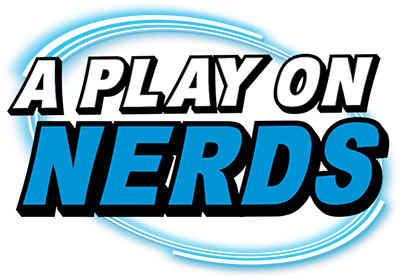The manhunt for Grant Ward starts now. This week, Agents of S.H.I.E.L.D. kicks off what should be the last major arc of its third season, as the team seeks to finally eliminate their Ghost of Christmas Past, once and for all. "Paradise Lost" is largely a setup episode, establishing some of the future plot threads that will be coming into play, and providing some welcome backstory and development for season 3b's main villains.
We spend a lot of time on Gideon Malick, exploring his past through flashbacks, and reintroducing his daughter, Stephanie, who first appeared in the post-episode sting from "Parting Shot." Predictably, Stephanie's role in this episode is limited, and we don’t get a ton of insight into Malick through their shared interactions. The flashbacks, however, provide a nice bit of background on Malick’s younger years, as well as a deeper look into the history of Hydra- both of which tie in nicely with his current arc. I found the exploration of 1970s Hydra to be particularly valuable, as it sheds light on what seems like an inconsistency within Hydra’s organizational motives.
Hydra’s first introduction to the Marvel Cinematic Universe was back in Captain America: The First Avenger, in which the Red Skull led a rogue Nazi science division in his quest for the Tesseract and the God-like powers it contained. Fast forward through a second Captain America film and two seasons of Agents of S.H.I.E.L.D., and Hydra has taken on many forms, while still maintaining their overarching goal of world domination. Whether it was Arnim Zola and Alexander Pierce’s plan to infiltrate S.H.I.E.L.D. in order to secretly orchestrate global disasters, or Daniel Whitehall’s mission to find and weaponize the Kree Obelisk, the Hydra we’ve seen has mainly stayed true to their quest for world-conquering power.
That all changed this season, when we were introduced to Gideon Malick, and the revelation that Hydra was originally founded with the purpose of retrieving an ancient, exiled Inhuman from a distant planet, something that was never mentioned about Hydra previously. At first blush, this seems like an awkward retcon to Hydra's origins, engineered by the showrunners to keep the organization relevant to Agents of S.H.I.E.L.D.'s shift in focus towards developing its overarching Inhumans plot. However, the flashbacks reveal that as recently as the 1970s, there were two groups within Hydra- one aligned with the Malicks, who remained devoted to rescuing Hive, while the other group, led by Daniel Whitehall, favored outright world domination over the hockey fanatical worshipping of some kind of alien deity. While it's certainly still a retcon, I'm satisfied with the simple, straightforward explanation we're provided, considering it's something the writers could have just as easily swept under the rug.
This episode teases us further with Hive, giving us a brief glimpse of its true Medusa-y form. Brett Dalton continues to deliver a solid performance as Hive-Ward, and has proven to have quite the range- going from the boy scout S.H.I.E.L.D. agent he played in season one, to the psychopathic betrayer in season two, to the menacingly soft-spoken monster we see in season three. Now that Hive has made its presence known to S.H.I.E.L.D., Coulson is finally confronted with the cold blooded way in which he murdered Ward. Luckily, the show doesn't overstay its welcome with dwelling on this crisis of conscience, and as always, Clark Gregg makes us feel the moral weight of Coulson's situation in a believable and relatable way.
The rest of the S.H.I.E.L.D. gang spends this episode searching for Hive-Ward’s new right-hand man, the telekinetic Inhuman, Giyera. Despite his unassuming nature and minor bad guy role, Giyera proves to be quite the compelling antagonist, with an exciting closed-quarters encounter with May, and a thrilling action sequence towards the end of the episode that creates a nice cliffhanger leading into next week. Meanwhile, FitzSimmons investigates the source of Hive-Ward's powers, concluding that Hive itself is made up of tiny microorganisms capable of devouring and manipulating human flesh. As far as explanations go, it's certainly a little out there, but at least the writers make some kind of an attempt to try and ground this otherworldly monstrosity in reality. I'm not exactly sure how tiny microorganisms can possibly bring people back from the dead, but as Fitz would say:
Daisy and Lincoln split off from the rest of the group for a side mission that turns out to be much more enjoyable than its C-plot status would imply. The show’s resident “It” couple seeks out James, an Inhuman banished from Afterlife before he could undergo terrigenesis, in hopes that he can provide them with information on Hive. James proves to be a fun character in his limited amount of screen time. He demonstrates good chemistry with both Lincoln and Daisy, and is set to return in an episode two weeks from now, as well. The Shake and Bake pairing continues to be blah, at best, but at least the writers are giving Lincoln more focus and backstory, even if said backstory is a bit melodramatic.
By episode's end, we're left with a big hint of what's to come. After over half a season of build-up, it's finally Secret Warriors time for the MCU, and the preview for next week's episode features the return of some welcome familiar faces. Something else worth noting is how little Agents of S.H.I.E.L.D. seems to suffer from the departure of Bobbi and Hunter. While I’m not surprised the show has stayed its course without the beautiful, albeit one dimensional Bobbi, it’s a little strange that even without Hunter’s charming wit, and the desperately-needed levity it brought to the show, AoS has hardly missed a beat in terms of tone and quality.
Garrett Yoshitomi is a contributor for A Play on Nerds. He covers Marvel films and television, and enjoys fantasy baseball, Big Brother live feeds, and Anna Kendrick. You can find his tweets @garrettweets
